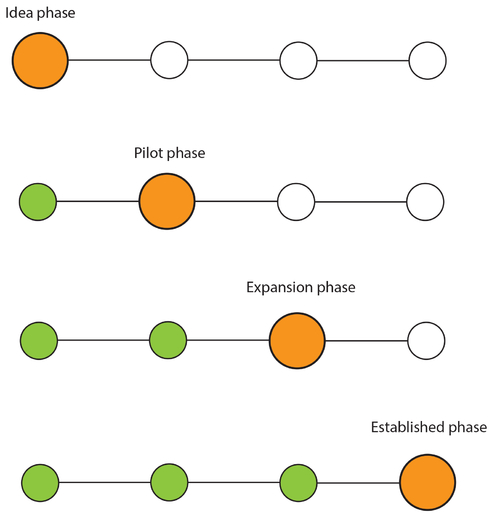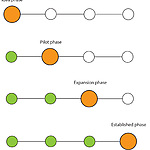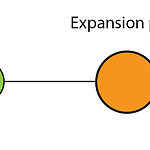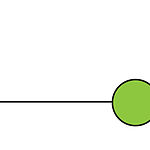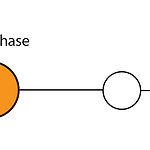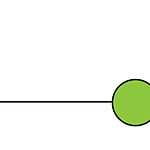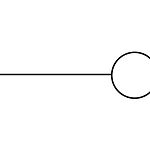In the previous paragraph there were 24 projects identified that were mentioned as having a current presence on Texel. These projects are analyzed in this paragraph. For each of these projects there are several components that will be discussed in order to make a comparison. As many niche projects like these tend to be frail, it is important to look at the current phase of the project. A project can by in any of the following four phases: (1) the idea phase, (2) the pilot phase, (3) the expansion phase, and (4) the established phase.
On the one hand the organizers and participants are relevant to analyze, on the other the scale of the set up as well as its current reach are relevant to analyze. Next to this the goal of the projects will be discussed and how far they have succeeded. Since the projects are split into the sub-systems of food, waste, transport, energy and tourism, the influence of the main sustainability criteria in Texel on the sub-systems is taken into account.
3.3.1. Food
There are at least eight unique sustainability initiatives related to food on Texel. Most of them are established businesses that are capable of running without any interference (initiatives 2, 3, 4, 6, and 7). Besides this there are some pilot projects (initiatives 8 and 9) to experiment with introducing new crops to the island, and will hopefully have results in the next few years. The initiatives are discussed below.
Texelse Kost (Mast, 2015). This project has been recognized as a legal initiative, and is currently trying to involve more producers and attract more customers. While they have a few ‘profit’ producers, many of the producers sell leftovers from their own vegetable garden. Their goal is to produce local, sustainably grown food, and to create a source of fair and affordable prices, both for the producer and consumers. By creating this affordable pricing, the economical barrier that existed for the Profit-Local will be removed.
Texel slow food (Slow Food Nederland, 2012).
This is a worldwide organization that has a specific chapter in Texel. Several businesses and restaurants have joined their cause. They focus on producing local food in such a way that there is no ecological damage to the land on which it is grown. They also spend time education people. They are trying to create more awareness, and by getting as many restaurants involved as possible they are also removing non-sustainable options from the island, thus getting Profit-Locals to be more sustainable.
Texel culinair (Texel Culinair Proverij, 2014). An annual festival that has been established at least twelve years ago. Restaurants on Texel (of which several are sustainable) show their products. It is a good way to introduce consumers (both tourists and locals) to the great variety of products on Texel, and it is a risk-free way for these people to try locally produced foods. By showing the quality of this food, the Planet-Local can reduce the fear Profit-Local has related to sustainable products.

Texels special bier (Texels Speciaal Bier, 2015). This is an established, self-sustaining and profitable company that brews beer only using local ingredients. They are now producing sufficient that extending their sales area to the mainland is possible. By using only local materials, and brewing beer in a responsible, traditional manner, they are contributing to sustainability on the island. Their beer is a sustainable, reasonably priced alternative to imported beers that will speak to both the locals’ pride of Texel and the tourists’ interest in the culture on the island.

Zelfpluktuin (Zelfpluktuin, 2015). This is a public orchard/tourist attraction that has been running for twenty years. Their main focus seems to be for tourists, but they also sell a lot of goods they make out of their own grown foods. They provide knowledge about different fruits that can be grown on the island, and this initiative provides tourists with sustainable day activities.
Novalishoeve (Zorgboerderij Novalishoeven, 2015). This is a farm whose goal is to provide therapy and activities for people with all kinds of mental or physical issues. They have been established since 2007, and as part of their activities they run this farm in such a way that they create sustainable food products. They try to re-use all their waste to create closed material cycles on the farm, and use the harvest to produce a great variety of sustainable foodstuffs, thus providing the locals with more grocery options.
Cranberryteelt (Landgoed de Bonte Belevenis, 2015). This experiment is in its pilot phase. They are trying different ways of commercially growing cranberries, instead of picking them from the wild. They will have their first results in 2016. As it is not yet productive, the estate on which the cranberries grow funds them. They want to provide a source of sustainably grown goods that as of yet does not exist on the island yet (in numbers great enough for exclusively local production). In this way they can provide a sustainable alternative to the Profit-Locals.
Zeewiercentrum (NIOZ, 2015). This is a research center with the aim to be the world pioneer on seaweed farming. They are running different pilots in combination with several knowledge institutes, and are aiming to create profitable methods for seaweed farming that lets them produce a great variety of products. This is in the hope that Profit-Locals will buy them instead of imported goods. They also provide a boost to tourism, as more people will visit Texel in order to visit this institute.
All of these initiatives focus almost exclusively on growing local products and a great variety of local products on this island, some of which are not native. This means they are also paying attention to keeping the ecological balance of the island intact, as there is no more land to grow crops on if the existing ones should fail due to over-farming. The goal of these initiatives is to be able to stock the stores with locally grown products, for which they are trying to create fair prices so there will be no economical disadvantage anymore. Many of these initiatives also focus on dispelling knowledge in Profit-Locals. So far many of these initiatives are successful on the business sides, and manage to run a profitable company, but are not yet producing enough that they are capable of motivate the Profit-Local and the Tourists to their side of the argument.
3.3.2. Waste
The waste related initiatives are mainly focused on preventing the creation of waste, or cleaning up existing waste through volunteers. Many of these initiatives are non-profit and still expanding their range of influence. One of the initiatives is even very small-scale: a creative attempt by one family to create more awareness for re-use of materials. Other initiatives are bigger and focus either on prevent the creation of unnecessary waste or creating many collection points for the waste that cannot be avoided.
AquaTX (AquaTX, 2015). This is a small organization that is trying to combat an aspect of unnecessary waste on Texel: water bottles. Their goal is to spread knowledge about the economical and ecological disadvantages of water bottles, and they have managed to get several large companies and government organizations to commit to not using water bottles on the island. While these companies are working together, there is no real proof this initiative has really embedded itself into the island’s socio-technical system yet. They are aiming to show the economical advantage of sustainability to both the Locals and Tourists.
Juthout (Juthout, 2011). This is an initiative that was active a few years ago, where a family of traditional ‘jutters’ collected waste and driftwood from the beaches and used it to create unique furniture. While they are still collecting waste, they have stopped making this furniture. As an initiative it is very small scale, but it does show the possibilities of re-using materials and creating alternatives for imported goods.
MyBeach (Texel, 2015). A growing initiative that promotes collecting existing waste and preventing people from adding more waste. They are creating collecting points with information and trash cans, beach pavilions are getting involved. They are also organizing regular clean up gatherings. This is an initiative by the Planet-Local to prevent visitors from creating more waste on the beaches, whether these visitors were locals or tourists.
Out of three initiatives, there is only one initiative that is clearly expanding its influence range and actively getting more people from the Profit-Local and Tourist groups involved. These projects focus on two areas. One is making re-usable products available together with products made of re-used materials. The second is creating an infrastructure of collection points where the existing waste can be collected and separated, hence it might be reused again.
3.3.3. Transport
There are four sustainability initiatives on Texel that focus on public transport that are in varying phases of development at the moment, from early in the practice phase to completed projects. With these projects (14, 15, 16, 17), three initiatives focus on the three types of public transport available on Texel (taxi, bus and ferry), the latter focuses on privately owned cars.
TBO-Texel (Taxi Pro, 2013). This highly successful initiative achieved its goals and is a step towards energy neutral and fossil fuel free cars on the island. This is an example of the Planet-Local influencing the Tourists and the Profit-Locals simultaneously, by not giving them any non-sustainable options.
Stichting Urgenda (ZERauto, 2012). Achieved its goals for testing enthusiasm for electrical cars on Texel and creating the infrastructure to supplement these goals (Rijksdienst voor Ondernemend Nederland, 2014). This infrastructure opens doors for new sustainable car initiatives. The Planet-Local spreads knowledge and lower the costs for Profit-Locals to join them in this initiative.
Texelhopper (Texelhopper, 2015a). This is still in the middle of the pilot project, but an increase in the use of public transport can be seen. By creating a more variable timetable for public transport, locals and tourists will more easily take public transport (Texelhopper, 2015b). With the Texelhopper there are 300 times more bus stops in Texel and one should call the bus an hour before taking the bus, so this is a very flexible system. There is an anti-group that claims that there are many people waiting at the bus stop that leads to a delay and ultimately leads to missing the boat to the mainland. However, the advantages of the Texelhopper are underexposed at the moment. For example the fact that without this Texelhopper there probably would have not been any bus in the upcoming years (because of a vicious cycle), and that the previous bus also could have delays which led to missing the boat. (Bloksma, 2015)

OVpro (OV Pro.nl, 2015). This project is still in the very early practice phase. This will create an opening for more sustainable development through green gas at a later date. This way the Planet-Local influences both the Profit-Local and the Tourist by giving them solely sustainable options.
Many of the initiatives focus on promoting public transport and creating sustainable options for this, often through the Planet-Local not giving any other options than the sustainable one. They also create an infrastructure that makes it much cheaper for the Profit-Local to use sustainable private transport than non-sustainable ones.
3.3.4. Energy
There is currently one active sustainable initiative going on Texel for the sub-system energy, though as a matter of fact this company (TexelEnergy) runs quite a few smaller projects based on different kinds of energy. The other initiatives (Goedkoop SOLAR and Cloud Power Texel) were government-funded experiments that have ended. Last there is a knowledge platform on which information on all these active and future initiatives will be connected to allow for easier sharing and a better connection between consumer and producer.
TexelEnergy (TexelEnergie, 2015). This is an energy provider on the island whose main focus is proving many different types of sustainable energy and running a lot of initiatives with the goal to get the consumer involved with producing their own sustainable energy. By doing this they are providing Texelaars with a sustainable source of energy, and showing the economical benefits of sustainable energy.
Goedkoop SOLAR (Goedkoop SOLAR, 2015). This two-year initiative gave subsidy to people who were willing to place solar panels on their roof. They also shared reliable information about both the positive and negative aspects of solar energy. While this discount only ran between 2013 and 2014, they are still placing solar panels and showing the economic benefits the owners could get from this personal intervention.
Cloud Power Texel (Rijksdienst voor Ondernemend Nederland, 2015). This was a government-funded pilot experiment that ended in January 2015. Their goal was to test if a small grid generated from sustainable energy combined with smart technology was viable for users willing to change their lifestyle. In the end many users were willing to change their energy use based on the weather patterns and generated daily energy. Later with even smarter technology this could be even more efficient. Notable was that while the Profit-Locals were very enthusiastic about this initiative by the influence of the Planet-Locals, the energy use of the Tourist was not influenced by this project.
Texel Geeft Energie (Texel Geeft Energie, 2015). Unlike the other initiatives, this is not an active project, but instead a platform on which these earlier named initiatives can share information. It is supposed to be a gathering point for all sustainable energy interventions, big or small, and also promotes locals and smaller initiatives on the forums. The goal of this is to spread information between Planet-Locals, but also to create awareness towards Profit-Locals, and let them know how easy it would be to get involved.
While many of these initiatives seem to be successful, half of them have already ended, and there seems to be no initiative to keep these projects going. All of these initiatives however, have focused on generating sustainable energy on the island, in many different forms, and unlike other initiatives, they have also tested consumer reaction to this in great detail. Many of these projects are actively trying to get the consumers involved, and trying to showcase the advantages in order to turn the Profit-Local into a Planet-Local.
3.3.5. Tourism
Within the sub-system tourism are three initiatives that are sustainability focused. These are a yearly festival, a nature center and a company that organizes day trips. All of these initiatives are established for generating profit (though Midzomerschans is funded by the organization for Nature monuments).
Midzomerschans (Midzomerschans, 2014). Annual music festival that is promoted and funded by the foundation Nature Monuments in order to spread more awareness by reaching out to both the Local and the Tourist. By creating more sustainable activities on the island, there will be more eco-tourists on Texel.
Ecomare (Ecomare, 2015). This company is one of the greatest attractions on the islands. It is a nature center that provides care for sea animals and works at restoring the natural areas around the island. It is an established business capable of running without government funding, mainly because of the tourists that visit this center every year (Ecomare, 2014). Their goal is to spread information about the ecological surroundings of the island, and ways humans can live in these environments without permanently ruining them. In this way they also provide tourists with sustainable day activities.
Texeltrips (Texeltrips, 2015). A company specifically focused on organizing sustainable and ecologically responsible excursions for tourists. This can help spread knowledge to non eco-tourists, but it will also help attract more ecologically conscious tourists towards the islands, thus helping the economy and the businesses of the Profit-Local.
These initiatives focus on creating activities for tourists on Texel that do not permanently damage the island and surrounding ecological system in any way. Out of the three, Ecomare is actively focused on restoring the already damaged areas and spreading information about how to prevent this. By creating many varied ecologically sustainable initiatives, more tourists will chose to do these, and more eco-tourists will be interested in visiting Texel.
Conclusion
There is a great variety of initiatives on Texel, though there are some strong common goals that can be found, e.g. creating local food sources and generating energy locally. The fact that Texel is an island community with a huge physical barrier between them and other sources of food and energy probably has something to do with this. The feeling of independence from the mainland is also emphasized on by an active Planet-Local in Texel during one of the interviews. (Bloksma, 2015)
Many of these projects are run by enthusiastic Planet-Locals who firmly believe that a more sustainable Texel is the best option. However, it is striking that the sustainable initiatives only take place if the Planet-Local had made its job out of it, so to get money from it and not to spend its spare time on it, this is also highlighted by the previously mentioned Planet-Local (Bloksma, 2015). However, while most of them seemed to manage to turn a profit and continue expanding and spreading their knowledge, their customer base seems to remain relatively small. They are not spending a lot of effort on trying to gather new people.
Interestingly enough, the initiatives that did intensively focus on involving people (stichting Urgenda, Goedkoop SOLAR, Cloud Power Texel) were all government-funded pilots that have since ended, without anyone continuing this process.
In the end, a big part of the problem in all these initiatives is a disconnection between consumer and producers, and an inability of the projects to reach a wider audience. As these initiatives and knowledge pass by the Profit-Local, they feel no pressure or stimulation to change, and thus the status quo remains the same.
Besides this, there are only a few initiatives in the idea or pilot phase at this moment; this suggests that at this moment there are not many new sustainable initiatives. This fact however is strengthened by the interview with the Planet-Local in Texel, for more information it is referred to the interview report (Bloksma, 2015). So that suggests that currently there are no new sustainable initiatives, but that the sustainable initiatives from the past years are still visible in Texel, this could be related to the "duration of engagement" from the YUTPA model in the previous chapter. At the moment there is thus a lack of new sustainable initiatives, so at this moment the engagement of low. However, it might also be possible that there were no funds available for new initiatives (because of the economic crisis the last years). Since "negotiation" is also relevant in the design space that followed from the YUTPA model, this could be clarified. If there are no funds and thus no money, there is nothing to negotiated about and people will not be engaged to be involved in a new sustainable initiative.
Looking back at the literature study in chapter 3.1, the sustainable initiatives could be regarded as grassroots innovations in a niche. Hargreaves (2013) emphasizes on the importance of the role of an intermediary action within this niche. We mentioned that in the case of Texel this intermediary actor could connect sustainable initiatives by means of niche management and bring the Planet-Local and Profit-Local together by broker and manage relationships, we proposed the municipality of Texel to take responsibility to take this role. It might be the case that the municipality did not take this role and therefore the sustainable initiatives could not be a fully efficient niche innovation. So here lies an opportunity for Texel.
